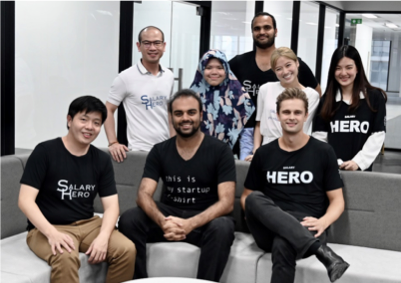A host of major European tech founders and investors are today backing the launch of OneUkraine, a new charity providing sustainable humanitarian relief for the Ukrainian people.
OneUkraine will be supporting Ukrainians at home and abroad, delivering humanitarian aid, and aiming to rebuild the tech and broader infrastructure of Ukraine by SMEs and startups on the ground. With many of the organization’s founding members being from Ukraine or with family ties to the country, the organisation hopes to leverage direct access to local networks and real-world data about the country’s needs.
The organisation says it has now evacuated more than 5,500 people, mostly women and children, and already delivered aid worth more than EUR 4 million. It’s also built a Ukrainian school in Lithuania to provide education for refugees.
In a statement Martin Reiter, CEO and co-founder of OneUkraine: “With many of our founders born and raised in Ukraine, we felt compelled to help our friends, family, and colleagues. All of our founders have proven track records leading or founding tech unicorns, and we are now doing collectively what we do best: working quickly and efficiently at scale, providing instant and much needed humanitarian relief for the people of Ukraine. We believe that we can help best by bringing an entrepreneurial, data-driven and sustainable approach to the world of humanitarian aid, complementing other major relief efforts.”
OneUkraine’s founding team:
• Martin Reiter: Martin ran Groupon Ukraine back in 2011 and still has many friends in Ukraine.
Martin previously held leading positions at Airbnb and Wayfair Europe and co-founded
mademoisellemartina.org to help evacuate Ukrainian women and children.
• Martina Kojic: Martina grew up in post-war Croatia, with the impact and trauma of the post- war situation shaping much of her childhood. Martina co-founded mademoisellemartina.org to
help evacuate Ukrainian women and children.
• Markus Fuhrmann: Markus, whose wife and her family are from Mariupol, Ukraine, is CEO
and co-founder at GROPYUS, and previously co-founder of Lieferheld.de and Delivery Hero.
• Wolfgang Heigl: Wolfgang, who lives in Lithuania, is the founder of NFQ and HomeToGo.
• Viktoriya Tigipko: Viktoriya, born and raised in Kyiv, Ukraine, is the founding partner of TA
Ventures and founder of ICLUB Global, the network angel investors. She is the founder of WTECH, a 5k+ network of women in tech business, chairman of the Board of Ukrainian Startup Fund and founder and president of Odesa International Film Festival.
• Johannes Reck: Johannes, whose grandfather grew up in a small village which today is part of western Ukraine, is the co-founder and CEO of GetYourGuide.
• Dmitry Gorilovskiy: Dmitry, whose mother is from Rovno, Ukraine, has been organising adoptions of Russian orphans with disabilities since 2014, when the Russian government prohibited adoption by foreigners. He is a serial founder of product design, IoT and machine learning businesses such as Woodenshark and Moeco.
• Klaus Hommels: Klaus is the founder and chairman of Lakestar and one of Europe’s leading venture capitalists.
• Jens Hilgers: Jens, whose wife is Ukrainian, is a serial entrepreneur and has built and managed international games and tech companies in Central and Eastern Europe as well as in Asia. Among others, Jens is founding GP at BITKRAFT Ventures and is co-founder and chairman at G2 Esports.
• Alexa Sinyachova – Chief Executive Officer – Moeco. Alexa is Ukrainian. She is the Co-Founder & CEO at Moeco and WTech Berlin curator.
OneUkraine was set up as a long-term initiative and requires substantial donor funds. The cost of the operational team will be fully funded by the founders’ personal funds, but OneUkraine is inviting donors and other partners to help fund the projects and support Ukraine efficiently. The platform is incorporated in Germany as a gGmbH, a charitable limited company and is audited by Ecovis, a leading auditor specialised on charities.



